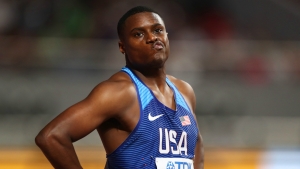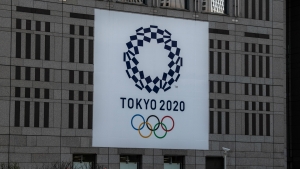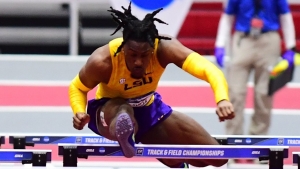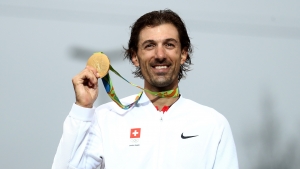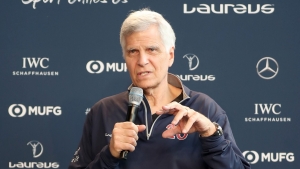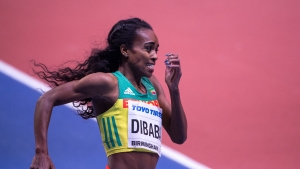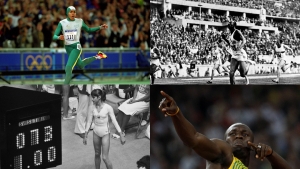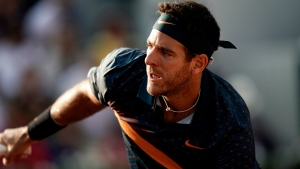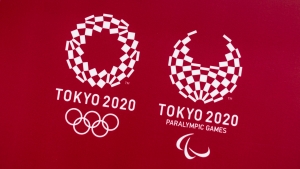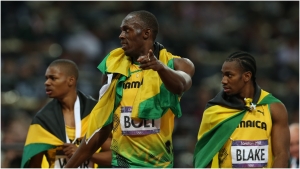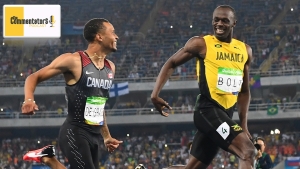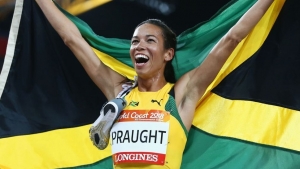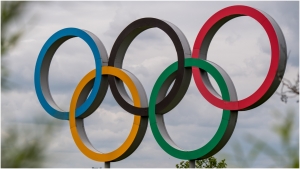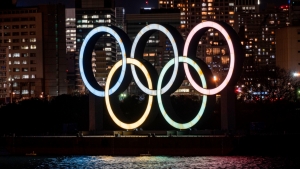Only 100 days remain until the rearranged Tokyo Olympics begin, some 12 months after they were originally scheduled to take place in the Japanese capital.
The overriding question over the past year has simply been: how will this happen?
Uncertainty still lingers over the monumental logistical effort needed to reschedule an Olympics, one that did not take place as planned for the first time since World War II as a result of the coronavirus pandemic.
Over a year since it was first confirmed the Games would be put back, the global health crisis is still wreaking havoc as countries battle COVID-19 with varying levels of success.
For the International Olympic Committee (IOC) and the Japanese government, a more pertinent question may be: how could the Games not go ahead?
Soon, more than 11,000 athletes plus their coaches, as well as throngs of media and officials from around 200 nations, will flock into a single city during a pandemic.
As the Games come into view and the ceremonial lighting of the Olympic cauldron draws closer, the message has been pretty clear – one way or another, the show will go on.
So, just where are we at and what do we still not fully know about how the Games will function?
HOW THE SITUATION IS VIEWED IN JAPAN
While there appears little chance of another immediate postponement, there has not been particularly mass support from the people of Japan.
A Times report in January citing an unnamed Japanese government source suggested the Games would be cancelled – suggestions that were labelled as "categorically untrue" by the IOC.
But a survey taken by the Kyodo News Agency in the same month found approximately 80 per cent of people wanted another postponement or cancellation.
A more recent poll taken by consultancy Kekst CNC found 56 per cent of respondents in the country do not want the Olympics to take place.
Confidence in Japan's ability to host the Games will hardly have been improved by the Olympic torch relay being prevented from taking place on public roads in Osaka on April 13 and 14 due to a surge in coronavirus cases.
While a full lockdown has never been imposed in Japan, a second state of emergency in Tokyo was only lifted on March 22.
Daily new infection rates in Japan decreased to a little over 500 in early March, but rates have steadily been on the rise again, with over 3,695 reported on April 10. Over 9,000 people have died after having a confirmed case in the country.
There are also concerns about the speed of the vaccine rollout in Japan, with frontline medical workers having not started receiving jabs until February. It could be July by the time the wider population is offered a shot.
PLAYBOOKS, TESTING AND NO MANDATORY VACCINATIONS
Despite those reservations, the IOC and Tokyo 2020 Organising Committee have pressed ahead to come up with an extensive collaborative list of rules in a 'playbook'.
Athletes and officials, members of the press, and international federations are among the groups who will have to follow playbooks for the duration of the Games.
The guidance we have all become so familiar with for over a year is stressed: avoid physical contact, maintain distance, follow good hand hygiene, wear masks, and keep away from crowded spaces where possible.
Chanting and singing is discouraged, with the playbook stating athletes should be supported instead by clapping.
Additionally, an activity plan must be provided for the first 14 days when entering Japan – including details of planned activities, travel intentions, and accommodation details.
All those required to adhere to the rules of the playbook are permitted to visit only official Games venues and selected other locations, while going to bars, shops, restaurants or tourist locations is not allowed.
No mandatory period of quarantining will be required, unlike what was in place for the tennis Australian Open earlier this year, but anyone who provides a positive coronavirus test will have to isolate – which the playbook states may be at a government-approved isolation facility.
Athletes will not be required to have received a vaccine against COVID-19 to take part in the Games, although the IOC has actively encouraged participants to take the opportunity if possible.
The issue of whether vaccines should be mandatory remains a contentious one. Middle-distance athlete Genzebe Dibaba, a silver medallist for Ethiopia in the 1,500 metres at Rio 2016, recently told Stats Perform News she feels competitors should get a jab.
"Yes, I think it's safe and more comfortable to manage, to meet with the other athletes. [I think it's] better to take the vaccine," she said.
Swimming great Mark Spitz, a legend of the 1972 Games in Munich where he won seven golds, also believes Olympians should take a vaccine.
Speaking courtesy of Laureus, Spitz told Stats Perform: "Personally I've received the vaccine because of my age, I didn't jump in front of anyone in line. And there's nothing to fear from the vaccine.
"According to the doctors and the experts we're somewhere in excess of 90 per cent protected - that doesn't mean I don't observe social distancing, masking up and all the other things we've heard so much about and have been observing.
"I think the athletes will have to cope with these type of observances. I think the athletes should be vaccinated, not only for their own good but for anyone they come into contact with in their journey to get to Tokyo."
Athletes are to be tested every four days, but no decision has yet been taken on whether a positive result will see competitors prohibited from taking part in their events – the contention over potentially false positive tests remaining a sticking point.
At past Olympics, Games accommodation 'villages' have earned a reputation as party venues, with competitors clustered and able to blow off steam at the end of a brutal four-year training cycle.
But this year promises to be an altogether different experience, with athletes told to arrive five days before competing and leave no later than two days after their event finishes.
Temperature checks are required to be taken every day, and playbooks warn that such tests will also be required to enter any official Games venue – a temperature of more than 37.5 degrees would mean a competitor is not allowed to enter.
TRAINING DISRUPTION AND OVERSEAS FANS BANNED
Disruption to the Games has not just been a nightmare for organisers. Athletes too have had to rip up plans and training schedules, and find ways to adapt during unusual times.
Qualifiers and warm-up events have been cancelled or rescheduled, many official competitions have bitten the dust, and several months have been spent at home training, with practice facilities closing during lockdowns.
Amid the uncertainty has been the real fear of a full cancellation, and many have pondered whether the Games will lack integrity due to the varying levels of preparedness of athletes.
But many also believe athletes will just be desperate to compete on the biggest stage of all after over 12 months of turmoil.
"Everybody knows how special the Olympics are; for an athlete it cannot really get any better. You obviously want to do yourself proud and your family, but also you are representing your country," Fabian Cancellara, the cycling time trial gold medallist at both the 2008 and 2016 Olympics, told Stats Perform.
"Obviously with cycling I had many other big events, but the Olympics is huge and something you can never forget both when competing and the whole Olympic experience.
"You wait four, or in this case five years. Who knows how it is going to be in Tokyo really, nobody is quite sure but I'm sure they can still put a great Olympics on.
"The athletes will be even more hungry after waiting an extra year and whoever gets to experience what I did and become an Olympic champion, it's going to be amazing for them."
Spitz acknowledged the disruption, but he too hopes competitors will have had ample time to prepare.
"I can't speak on behalf on a lot of different sports and how their training habits have been affected. I know swimming, for example, it's been a bit of a concern since we can't get into pools here in America," he said.
"It has a profound effect on swimming obviously. Especially these large pools we need to practise in, 50-metre pools, it's not in somebody's back yard, and you need to be coached and assembled in a team.
"So, this was put on the sidelines for a number of months back in the winter time, but a lot of the athletes are on track right now. They have opened up these facilities and far enough in advance that come time for the Olympic Games we're going to see top-notch performances from swimmers around the world. How it's affected gymnastics or other sports I'm not quite sure but it definitely has affected them."
One thing that is certain is those competing are sure to do so in a very different atmosphere to past Olympics.
Last month, it was confirmed no overseas visitors will be allowed to attend the Games – a significant blow to an event that prides itself on providing an international flavour.
Approximately 900,000 to one million tickets had reportedly been sold across the Olympic and Paralympic Games to overseas spectators, all of which will need to be refunded.
Fears of a behind-closed-doors Games are unlikely to come to fruition, although a decision about a potential cap on capacity of venues is likely to be made in the near future.
TOO COSTLY TO CANCEL?
Of course, for all the messages of unity and triumphing amid adversity, there will be cynics asking whether this all boils down to one thing: money.
There is undoubtedly an element of truth that there is plenty to lose financially.
As of December 2020, it was reported the budget for the Olympics had risen to a whopping £11.5billion, an extra £2.1bn compared to the totals a year prior.
The additional costs are said to be mainly down to measures needed to combat the threat of COVID-19 and the renegotiating of contracts.
And there is pressure too from broadcasters, who contribute to around three quarters of the IOC's budget, who remain adamant the Games should go ahead.
So, yes, here we are with 100 days to go and barring a monumental change of heart, the show will indeed go on.
























